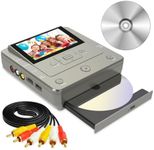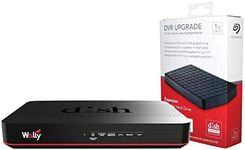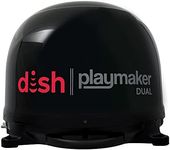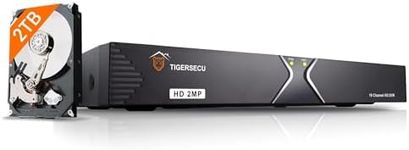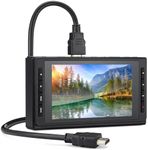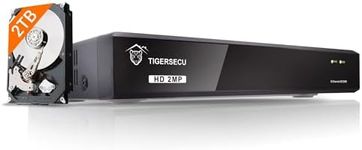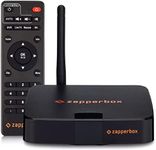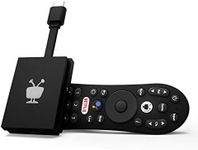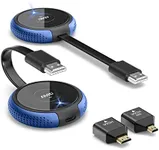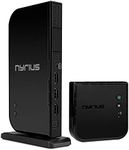Buying Guide for the Best TV DVR Recorders
When choosing a TV DVR recorder, it's important to consider your viewing habits, the types of shows you watch, and how you plan to use the device. A DVR (Digital Video Recorder) allows you to record live TV, pause and rewind live broadcasts, and schedule recordings for future programs. To find the best DVR for your needs, you'll need to look at several key specifications and features. Understanding these specs will help you make an informed decision and ensure you get the most out of your DVR experience.Storage CapacityStorage capacity refers to the amount of space available on the DVR to store recorded shows and movies. This is important because it determines how many hours of content you can save. Storage is usually measured in gigabytes (GB) or terabytes (TB). A DVR with 500GB might store around 75-100 hours of HD content, while a 1TB DVR could store approximately 150-200 hours. If you watch a lot of TV and like to keep recordings for a long time, opt for a larger storage capacity. If you only record occasionally, a smaller capacity may suffice.
Number of TunersTuners are the components in a DVR that allow it to record live TV. The number of tuners determines how many shows you can record simultaneously. This is important if you have multiple people in your household who want to record different shows at the same time. DVRs typically come with 2, 4, or even 6 tuners. If you often find yourself wanting to record multiple programs that air at the same time, choose a DVR with more tuners. If you rarely have scheduling conflicts, fewer tuners will be sufficient.
User Interface and Ease of UseThe user interface (UI) is the way you interact with the DVR, including the on-screen menus and remote control. A good UI is important because it makes it easier to find and record shows, manage your recordings, and navigate the DVR's features. Look for a DVR with a simple, intuitive interface that you find easy to use. If possible, try out the interface in a store or read reviews to see what other users think about its usability.
Compatibility with Streaming ServicesSome DVRs offer integration with popular streaming services like Netflix, Hulu, and Amazon Prime Video. This is important if you want a single device that can handle both live TV and streaming content. Check if the DVR supports the streaming services you use and if it offers a seamless experience switching between live TV and streaming. If you primarily watch live TV, this feature may not be as crucial, but if you enjoy a mix of live and on-demand content, it can be very convenient.
Remote Access and Mobile AppsRemote access allows you to control your DVR and watch recorded shows from your smartphone, tablet, or computer. This is important if you want the flexibility to manage your recordings and watch content while you're away from home. Look for a DVR that offers a reliable mobile app with good reviews. If you travel frequently or have a busy lifestyle, remote access can be a valuable feature. If you mostly watch TV at home, this may be less important.
Recording QualityRecording quality refers to the resolution and clarity of the recorded content. This is important because it affects your viewing experience. Most modern DVRs support HD recording, but some also offer 4K recording for even higher quality. If you have a 4K TV and want the best possible picture quality, look for a DVR that supports 4K recording. If you have an older TV or are not as concerned with ultra-high definition, HD recording should be sufficient.

